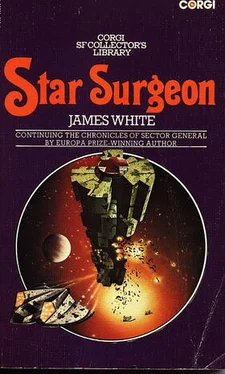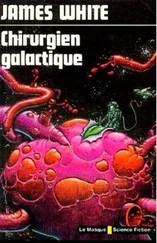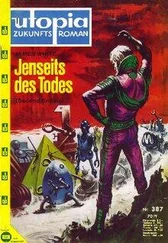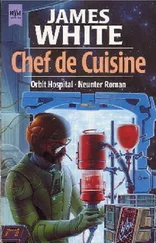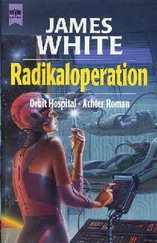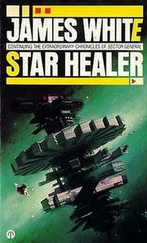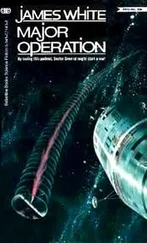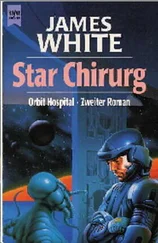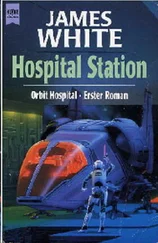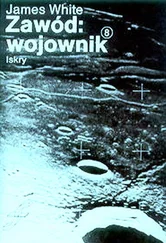“Thank you,” said Conway. The Corpsman left and he began to read.
Being a colony world which had not had the chance to grow naturally, Etla did not have national boundaries or the armed forces which went with them, but the police force enforcing the law on the planet were technically soldiers of the Emperor and under the command of Teltrenn. It had been a force of these policemen-soldiers who had attacked, and were still attacking, Lonvellin’s ship. At first appraisal, the report stated, the evidence pointed to Teltrenn having a personality which was proud and power-hungry, but the cruelty usually found in such personalities was absent. In his relations with the native population — the Imperial Representative had not been born on Etla-Teltrenn showed fairness and consideration. It was plain that he looked down on the natives-way down, almost as if they were members of a lower species. But he did not, openly, despise them, and he was never cruel to them.
Conway threw down the report; this was another stupid piece of an already senseless puzzle, and all at once he was sick of the whole silly business. He rose and stamped into the outer office, sending the door crashing against the wall. Stillman twitched slightly and looked up.
“Dump that paperwork until morning!” Conway snapped. “Tonight we are going to indulge shamelessly in pleasures of the flesh. We’re going to sleep in our own cabins …
“Sleep?” said Stillman, grinning suddenly. “What’s that?”
“I don’t know,” said Conway, “I thought you might. I hear it’s a new sensation, unutterable bliss and very habit-forming. Shall we live dangerously …
“After you,” said Stillman.
Outside the office block the night was pleasantly cool. There was broken cloud on the horizon but above them the stars seemed to crowd down, bright and thick and cold. This was a dense region of space, a fact further proved by the meteorites which made white scratches across the sky every few minutes. Altogether it was an inspiring and calming sight, but Conway could not stop worrying. He was convinced that he was missing something, and his anxiety was much worse out here under the sky than it had been at any time in the office. Suddenly he wanted to read that report on the Empire as quickly as possible.
To Stillman, he said, “Do you ever think of something, then feel horribly ashamed for having the kind of dirty mind which thinks thoughts like that?”
Stillman grunted, treating it as a rhetorical question, and they continued walking toward the ship. Abruptly they stopped.
On the Southern horizon the sun seemed to be rising. The sky had become a pale, rich blue which shaded through turquoise into black, and the bases of the distant clouds burned pink and gold. Then before they could appreciate, or even react to this glorious, misplaced sunrise it had faded to an angry red smudge on the horizon. They felt a tiny shock transmitted through the soles of their shoes, and a little later they heard a noise like distant thunder.
“Lonvellin’s ship!” said Stillman.
They began to run.
The communications room on Vespasian was a whirlwind of activity with the Captain forming its calm and purposeful center. When Stillman and Conway arrived orders had gone out to the courier ship and all available helicopters to load decontamination and rescue gear and proceed to the blast area to render all possible aid. There was, of course, no hope for the Etlan force which had been surrounding Lonvellin’s ship, but there were isolated farms and at least one small village on the fringe area. The rescuers would have to deal with panic as well as radiation casualties, because the Etlans had no experience of nuclear explosions and would almost certainly resist evacuation.
Out on the field, when Conway had seen Lonvellin’s ship go up and had realized what it meant, he had felt physically ill. And now, listening to Williamson’s urgent but unhurried orders going out, he felt cold sweat trickle down his forehead and spine. He licked his lips and said, “Captain, I have an urgent suggestion to make …
He did not speak loudly, but there was something in his tone which made Williamson swing around immediately.
“This accident to Lonvellin means that you are in charge of the project, Doctor,” Williamson said impatiently. “There is no need for such diffidence.”
“In that case,” said Conway in the same low, tense voice, “I have orders for you. Call off the rescue attempts and order everyone back to the ship. Take off before we are bombed, too …
Conway saw them all looking at him, at his white, sweating face and frightened eyes, and he could see them all jumping to wrong conclusions. Williamson looked angry, embarrassed and completely at a loss for a few seconds, then his expression hardened. He turned to an officer beside him, snapped an order, then swung to face Conway again.
“Doctor,” he began stiffly, “I have just put out our secondary meteor shield. Any solid object greater than one inch in diameter approaching from any direction whatever will be detected at a distance of one hundred miles and automatically deflected by pressors. So I can assure you, Doctor, that we are in no danger from any hypothetical attack with atomic missiles. The idea of a nuclear bombardment here is ridiculous, anyway. There is no atomic power on Etla, none whatever. We have instruments … You must have read the report.
“My suggestion,” the Captain went on, in exactly the tone he used to suggest that the junior astrogator make an alteration in course, “is that we rush all possible help to the survivors of the blow-up, which must have been caused by a fault in Lonvellin’s power pile …”
“Lonvellin wouldn’t have a faulty pile!” Conway said harshly. “Like many long-lived beings it suffered from a constant and increasing fear of death the longer its life went on. It had the ultimate in personal physicians so that illness would not shorten its already tremendous life span, and it follows that it would not have endangered itself by using a ship which was anything but mechanically perfect.
“Lonvellin was killed,” Conway went on grimly, “and the reason they hit its ship first is probably because they dislike e-ts so much. And it’s nice to know that you can protect the ship, but if we leave now they might not launch another missile at all, and our people out there and a lot more Etlans would not have to die …
It was no good, Conway thought sickly. Williamson looked angry and embarrassed and stubborn-angry at being given apparently senseless orders, embarrassed because it looked as though Conway was behaving like a frightened old woman and stubborn because he thought he and not Conway was right. Get the lead out of your pants, you unprintable fool! Conway raged at him, but under his breath. He could not address such words to a Monitor Colonel surrounded by junior officers, and for the added reason that Williamson was not nor ever had been a fool. He was a reasonable, intelligent, highly competent officer. It was just that he had not had the chance to put the facts together properly. He didn’t have any medical training, nor did he have a nasty, suspicious mind like Conway …
“You have a report on the Empire for me,” he said instead. “Can I read it?”
Williamson’s eyes flickered toward the battery of view-screens surrounding them. All showed scenes of frantic activity-a helicopter being readied for flight, another staggering off the ground with a load obviously in excess of the safety limit, and a stream of men and decontamination equipment being rushed through the lock of the courier ship. He said, “You want to read it now …
“Yes,” said Conway, then quickly shook his head as another idea struck him. He had been trying desperately to make Williamson take off immediately and leave the explanations until later when there was time to give them, but it was obvious now that he would have to explain first, and fast. He said, “I’ve a theory which explains what has been going on here and the report should verify it. But if I can tell you what I think is in that report before reading it, will you give my theory enough credence to do what I tell you and take off at once?”
Читать дальше
